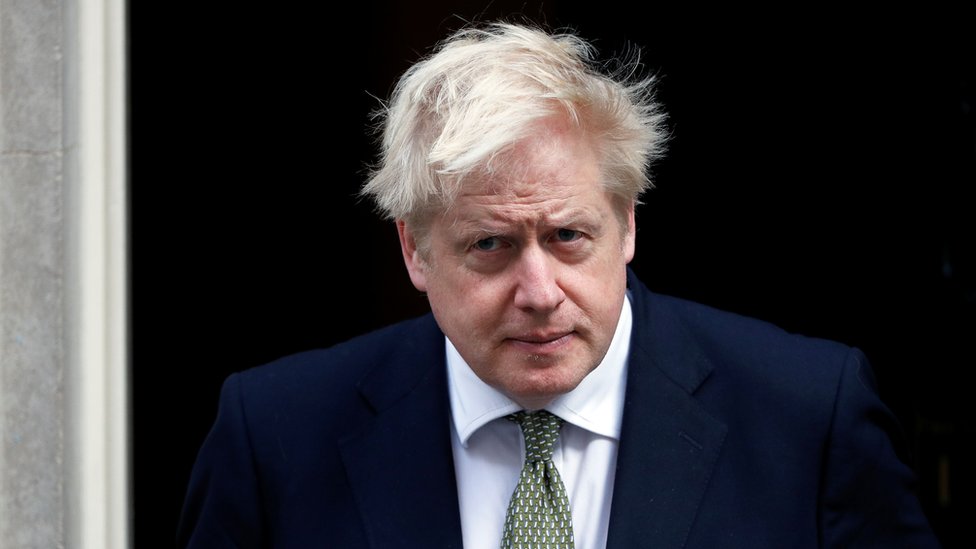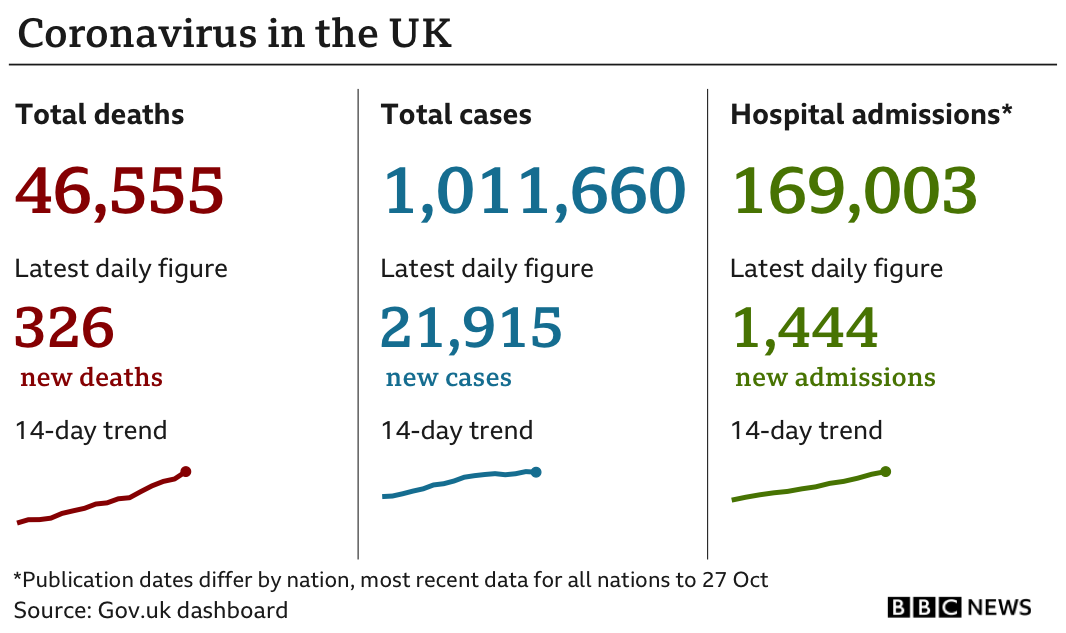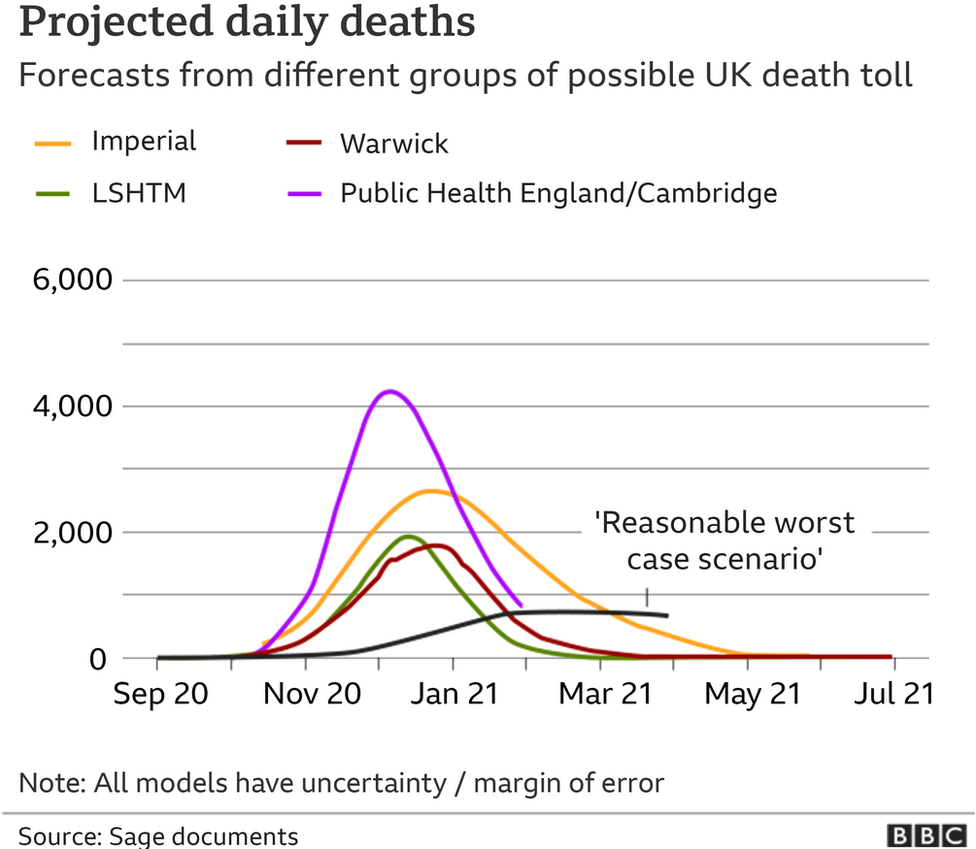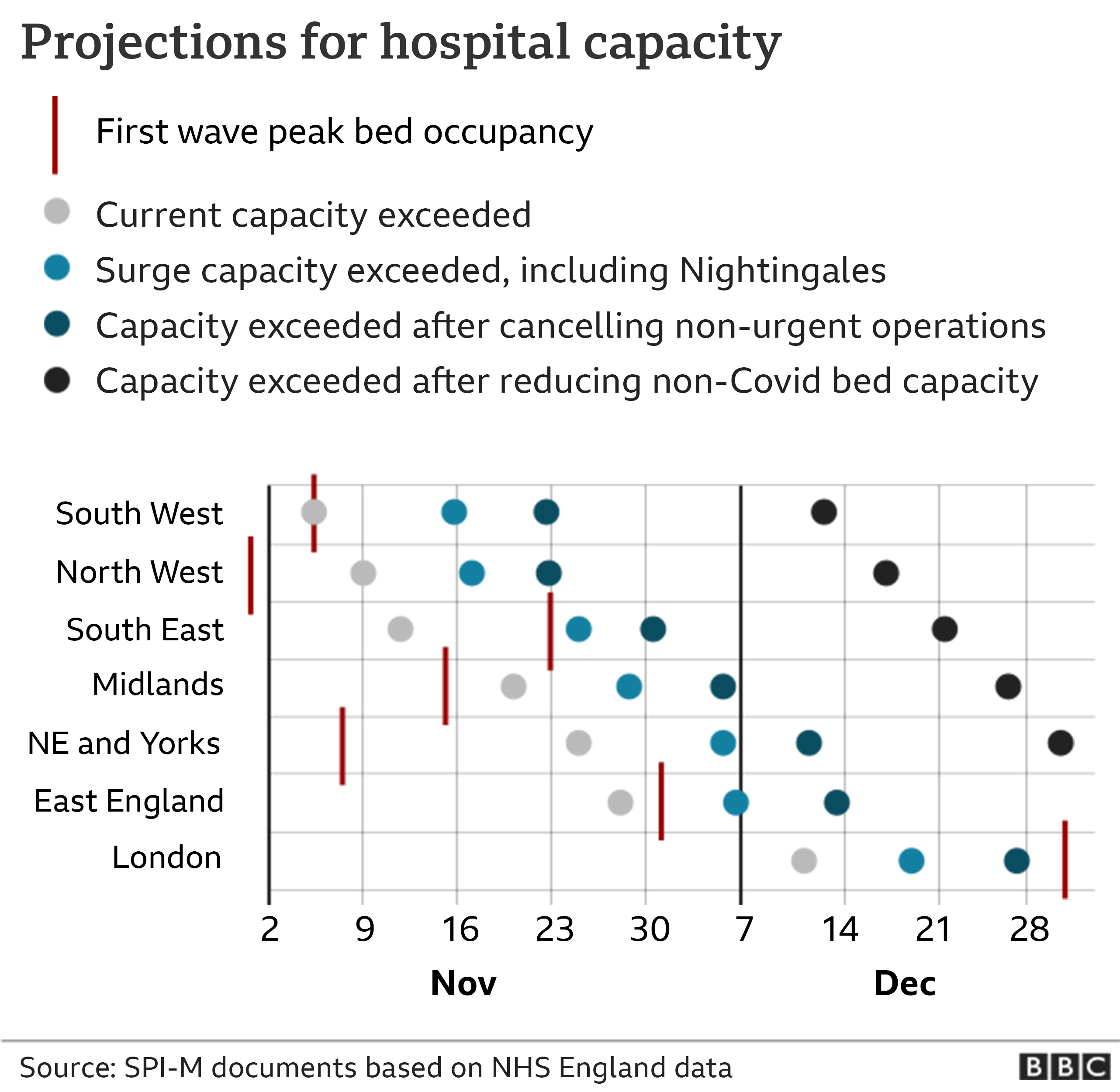Covid-19: PM set to announce four-week England lockdown
-
- Published

Non-essential shops and hospitality will have to close for four weeks, sources told the BBC.
But unlike the restrictions in spring, schools, colleges and universities will be allowed to stay open.
It comes as
documents suggested the UK was on course for a much higher death toll than during the first wave.The lockdown is also expected to include restrictions on travel and is due to come into force on Thursday, lasting until 2 December, BBC political correspondent Nick Eardley said.
Takeaways will be allowed to stay open as pubs, bars and restaurants close and it is expected people will be told they can only meet one person from outside their household outdoors.
The prime minister is due to lead a news conference later, after holding a cabinet meeting to discuss the coronavirus response.
He is set to be joined by England's chief medical officer Chris Whitty and the government's chief scientific adviser Sir Patrick Vallance for the briefing.
The UK recorded another 21,915 confirmed coronavirus cases on Saturday, bringing the total since the pandemic began to 1,011,660.
Another 326 people were reported to have died within 28 days of a positive test.
The UK is the ninth country to reach the milestone of a million cases - after the US, India, Brazil, Russia, France, Spain, Argentina and Colombia.
But the true number of infections is expected to be higher due to a lack of widespread testing at the start of the pandemic.

Mr Johnson has so far resisted pressure to introduce nationwide restrictions, saying they would be "disastrous" for the UK's finances and opting instead for a three-tiered system targeting local areas in England.
Ahead of the news conference, school and university unions called for education institutions to be closed and for teaching to move online in another national lockdown.
The National Education Union said it would be "self-defeating" to ignore how schools helped to spread the virus.
And "the health and safety of the country is being put at risk" by the insistence on keeping in-person teaching on campuses, the University and College Union said.


The month-long lockdown may suppress the virus, but what is less clear is whether the government will be in a better position to stop it rebounding.
There have been calls to fix the test and trace service, but that is easier said than done.
Testing capacity is being increased. In the coming days, the government is expected to announce its labs are able to process 500,000 tests a day. That should allow the system to speed up turnaround times.
But improving the tracing side of the service is likely to be much more difficult.
Councils in England are being encouraged to set up their own local contact tracing teams to support the under-pressure national system.
About a third of areas have now launched their own services and there are some encouraging signs in what's being achieved.
But questions are quite rightly being asked why this is only happening now as the second wave hits.
Significant levels of transmission are also being seen in care homes and hospitals, where one in six of the new daily admissions are suspected to be cases where patients have caught the virus in hospital.
Expect infection levels to come down quickly - and eventually that to translate to fewer hospital admissions and deaths.
But the true test of the lockdown lies elsewhere.

Elsewhere in the UK, Wales' First Minister Mark Drakeford said the 17-day "firebreak" there will end as planned on 9 November.
He said that his cabinet will meet on Sunday to "discuss any potential border issues for Wales in light of any announcement by No 10".
Scotland's First Minister Nicola Sturgeon has issued new advice that people should not travel to or from England, except for essential purposes, ahead of the nation's five-level system of restrictions coming into force on Monday.

- SOCIAL DISTANCING: What are the rules now?
- SUPPORT BUBBLES: What are they and who can be in yours?
- FACE MASKS: When do I need to wear one?
- SCHOOLS: What will happen if children catch coronavirus?
- TESTING: What tests are available?

Documents seen by the BBC, understood to be part of a presentation by the government's pandemic modelling group SPI-M shown to Mr Johnson, show projections by several different groups of the likely course of the disease.
All models predict that hospitalisations are likely to peak in mid-December, with deaths rising until at least late December before falling from early January.



A separate document circulating in government - based on NHS England modelling from 28 October - warns that the NHS would be unable to accept any more patients by Christmas, even if the Nightingale hospitals are used and non-urgent procedures cancelled.
It warns that south-west England and the Midlands will be the first to run out of capacity, potentially within a fortnight.
These latest papers come after a statement from the Scientific Advisory Group for Emergencies (Sage) revealed that Covid is spreading much faster in England than the predicted "worst-case" scenario.

- HALLOWEEN AT HOME?: Get in the mood for spookiness with these tracks from the scariest films
- THE NAKED SCIENTISTS: Why are people catching coronavirus on purpose?

World - Latest - Google News
November 01, 2020 at 12:48AM
https://ift.tt/2TH3H00
Covid-19: PM set to announce four-week England lockdown - BBC News
World - Latest - Google News
https://ift.tt/2SeTG7d
Bagikan Berita Ini














0 Response to "Covid-19: PM set to announce four-week England lockdown - BBC News"
Post a Comment